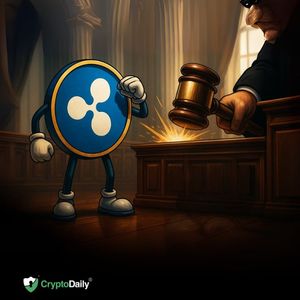Judge Blocks Ripple-SEC Bid to Slash XRP Penalty and End Injunction
3 min read
Ripple and the SEC’s joint efforts failed when a U.S. judge refused to reduce the $125 million penalty and lift an injunction in the XRP case, keeping key restrictions on Ripple’s institutional token sales intact. Ripple’s Attempt to Reduce Penalty Blocked by Court The long-running legal battle between Ripple Labs and the U.S. Securities and Exchange Commission (SEC) saw a fresh development this week, as U.S. District Judge Analisa Torres denied a joint request to amend the court’s earlier ruling. The decision leaves Ripple responsible for a $125 million civil penalty and maintains an injunction imposed over certain XRP sales. Less than two weeks ago, both parties approached the court seeking to reduce Ripple’s penalty for unregistered institutional XRP sales to $50 million, a significant cut from the $2 billion originally pursued by the SEC under former Chair Gary Gensler. The proposal also requested the removal of restrictions on Ripple’s future XRP transactions. However, Judge Torres dismissed these requests, citing the SEC’s extensive casework and the integrity of the court’s prior findings. Court Upholds Previous Findings on Institutional Sales In her ruling, Torres reaffirmed the distinction made in her 2023 judgment: while Ripple’s programmatic XRP sales through exchanges did not violate securities law, its direct institutional sales did. The judge noted that the SEC had built a strong case over four years to establish those violations, which warranted both financial penalties and operational restrictions on Ripple. The court made it clear that neither the SEC nor Ripple could retroactively nullify a court’s final judgment through mutual agreement. Judge Torres emphasized that an enforcement agency may alter its approach after initiating legal action, but both parties remain bound by the legal consequences already established. Legal Experts Speculate on the Court’s Motives The ruling has triggered speculation within the crypto legal community. Attorney Fred Rispoli took to social media to suggest possible reasons behind the court’s firm stance. According to Rispoli, frustration over the protracted litigation or underlying political biases might have played a role in the rejection. He noted the possibility of the court being discontent with the amount of time consumed by the case, alongside broader judicial leanings in politically charged regulatory matters. He also speculated, “She is hostile to the Trump administration and will do what she can to throw up obstacles. This reason is 100% in play for some federal judges (it is no matter who is in charge as there are judges that are political rather than objective).” Rispoli further speculated on the case’s next steps, suggesting that while the SEC previously indicated plans to drop its appeal, this move remains unconfirmed. He predicted that both parties might ultimately abandon their appeals, settle on a $50 million penalty, and allow the injunction to stand. Ripple’s Position and Outlook Following the court’s decision, Ripple’s Chief Legal Officer, Stuart Alderoty, commented publicly, stating that “the ball is back in our court.” He affirmed that despite the setback, XRP’s legal status as a non-security for programmatic sales remains unchanged. While Ripple may continue pursuing its appeal, the broader legal landscape for XRP appears largely settled outside of institutional sales. The SEC’s next formal action will likely determine whether the years-long case draws to a close or proceeds into another phase of litigation. Disclaimer: This article is provided for informational purposes only. It is not offered or intended to be used as legal, tax, investment, financial, or other advice

Source: Crypto Daily



